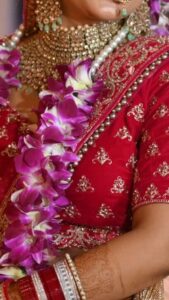Table of Contents
Introduction
Inter-caste marriage are solemnized between the caste Hindus and the Scheduled Castes belonging to the Hindu community. The marriage should be valid as per the law and duly registered under the Hindu Marriage Act, 1955.
Inter-caste marriages can be one of the significant steps to reduce caste caste prejudices, abolish ‘untouchability’ and spread the value of liberty, equality, and fraternity in society.
Inter Caste Marriage
Inter Caste Marriage also known as Marrying out of caste. In which One of the spouses should belong to the scheduled castes as defined under Article 341 of the Constitution of India.
Laws To Protect Intercaste Marriages In India
Dr. Ambedkar said that inter-caste marriage was “the real remedy for breaking caste” and “fusion of blood” would create the feeling of kith and kin. The sanctity of the Shastras needs to be diluted on which caste was founded and not occasionally bring about “inter-caste dinner and inter-caste marriages. which were futile methods of achieving their ends”.
Also Read, LEGAL AGE OF MARRIAGE OF BOY & GIRL IN INDIA-2024
Judiciary on Inter-caste marriages
The Attorney General of India informed the Supreme Court that the Special Marriage Act deals with inter-faith, inter-caste heterosexual marriages.
The five-judge Constitution Bench comprising of the Chief Justice of India DY Chandrachud, Justice Sanjay Kishan Kaul, Justice S Ravindra Bhat, Justice Hima Kohli and Justice PS Narasimha is dealing with a batch of petitions pertaining to ‘marriage equality rights for LGBTQIA+ community.
Attorney General of India R Venkataramani submitted before a five-judge Constitution bench that the multifaceted dimensions of the issues, though rooted in the conception of marriage, are not to be addressed only through the prism of the Special Marriage Act, but by a comprehensive stand-alone law, that may deal with the multi-dimensional issues arising out of the claim of persons other than heterosexuals.

The issues relating to transgender persons arising out of The Transgender Persons (Protection of Rights) Act, 2019 stand on a different footing and can be addressed without reference to the Special Marriage Act, the Attorney general said.
Attorney-General for India while advancing his submissions, said that “The court cannot fundamentally alter the basic text of the statute, thus the question of reading down the SMA does not arise for same-sex relati
The Attorney General of India informed the Supreme Court that the Special Marriage Act deals with inter-faith, inter-caste heterosexual marriages.
The five-judge Constitution Bench comprising of the Chief Justice of India DY Chandrachud, Justice Sanjay Kishan Kaul, Justice S Ravindra Bhat, Justice Hima Kohli and Justice PS Narasimha is dealing with a batch of petitions pertaining to ‘marriage equality rights for LGBTQIA+ community.
Attorney General of India R Venkataramani submitted before a five-judge Constitution bench that the multifaceted dimensions of the issues, though rooted in the conception of marriage, are not to be addressed only through the prism of the Special Marriage Act, but by a comprehensive stand-alone law, that may deal with the multi-dimensional issues arising out of the claim of persons other than heterosexuals.
The issues relating to transgender persons arising out of The Transgender Persons (Protection of Rights) Act, 2019 stand on a different footing and can be addressed without reference to the Special Marriage Act, the Attorney general said.
Attorney-General for India while advancing his submissions, said that “The court cannot fundamentally alter the basic text of the statute, thus the question of reading down the SMA does not arise for same-sex relations”.
Special Marriage Act is a law in relation to the conventional institution of marriage of heterosexual relations only.
A hidden provision cannot be retrieved if it never existed, he said further.
AG submitted that challenge to the Special Marriage Act is misconceived and said the law is a species of the general laws relating to marriages applicable to different faiths, religions, or sections of the community.
He said that marriage as a union of heterosexuals has always been rooted in the family as a social unit.
Special Marriage Act is only a law in relation to the institution of marriage. It is a law conceived in aid of such class of persons who may be otherwise disabled or obstructed in accessing the institution of marriage, AG said.
When the matters were called out, Solicitor General apprised the top court about the constitution of a bench headed by the Cabinet Secretary of the Government of India to redress the issues of same-sex couples.
Solicitor General, while concluding his arguments, submitted that the statutory law of any country does not regulate all human relationships, sans legitimate state interest, which in this case he said very much exists.
Arguing on behalf of the State of Madhya Pradesh, Senior Advocate Rakesh Dwivedi, submitted that there is an omnibus demand of equation with heterosexual marriage by amending SMA and this demand is not simpliciter right to marriage, but marriage at par with heterosexuals.
He submitted that there is no fundamental right to marry and/or recognition of marriage. There is no fundamental right to equation or equality in the matter of marriage with heterosexuals, he said.
Various petitions are being dealt with by Supreme Court seeking legal recognition of same-sex marriage.
One of the petitions earlier raised the absence of a legal framework which allowed members of the LGBTQIA+ community to marry any person of their choice.
